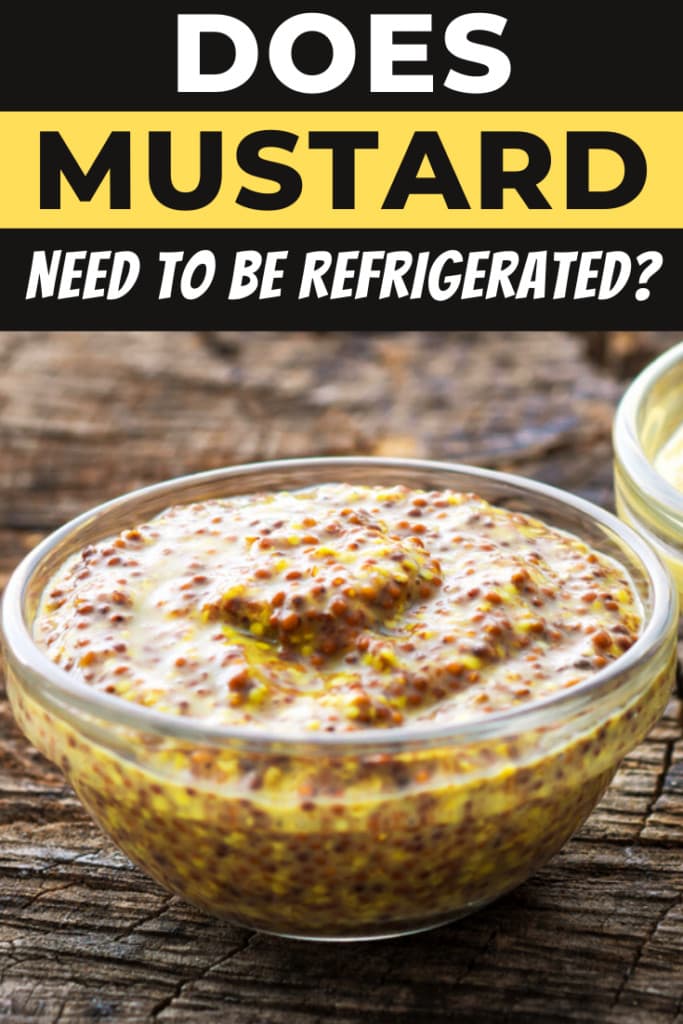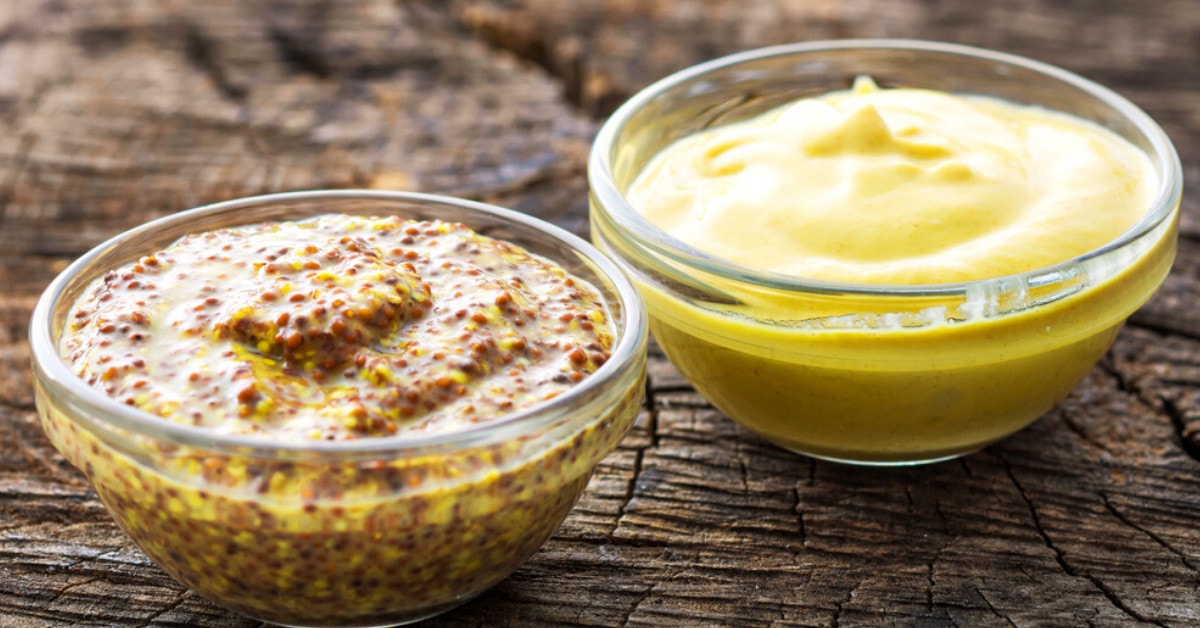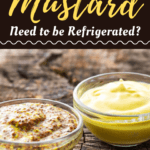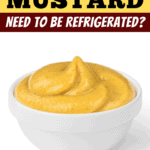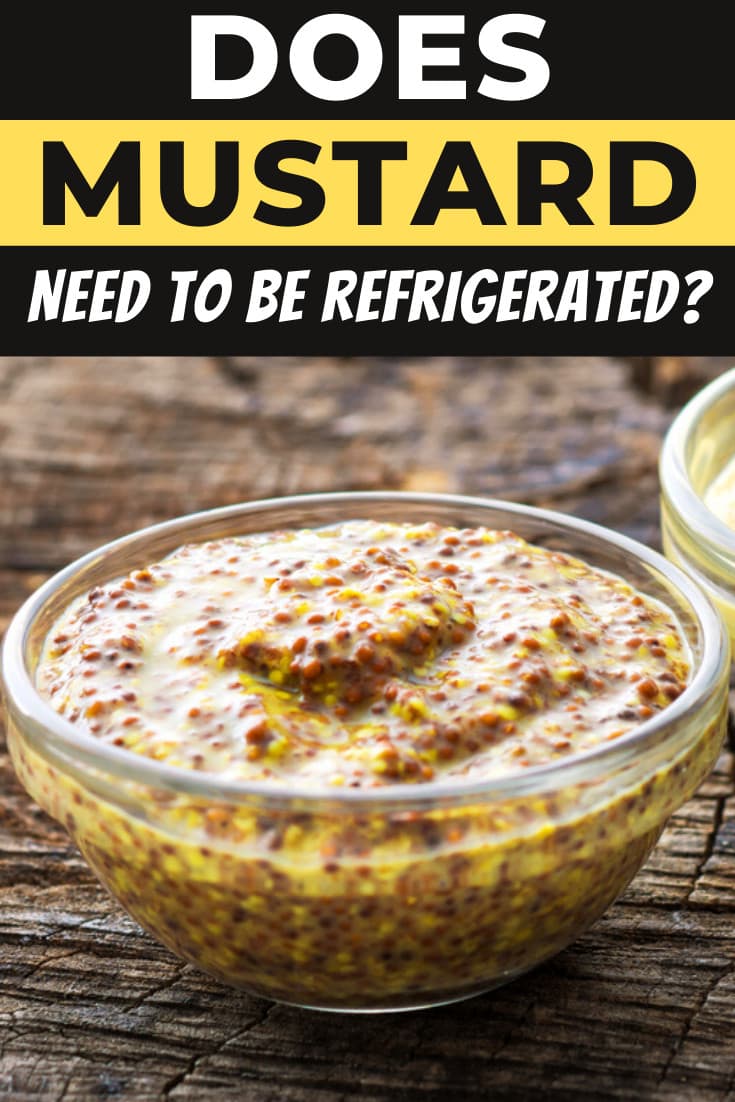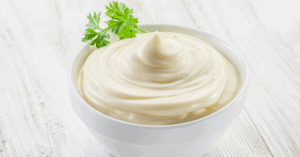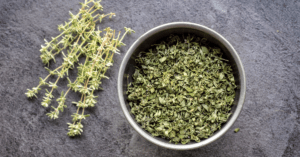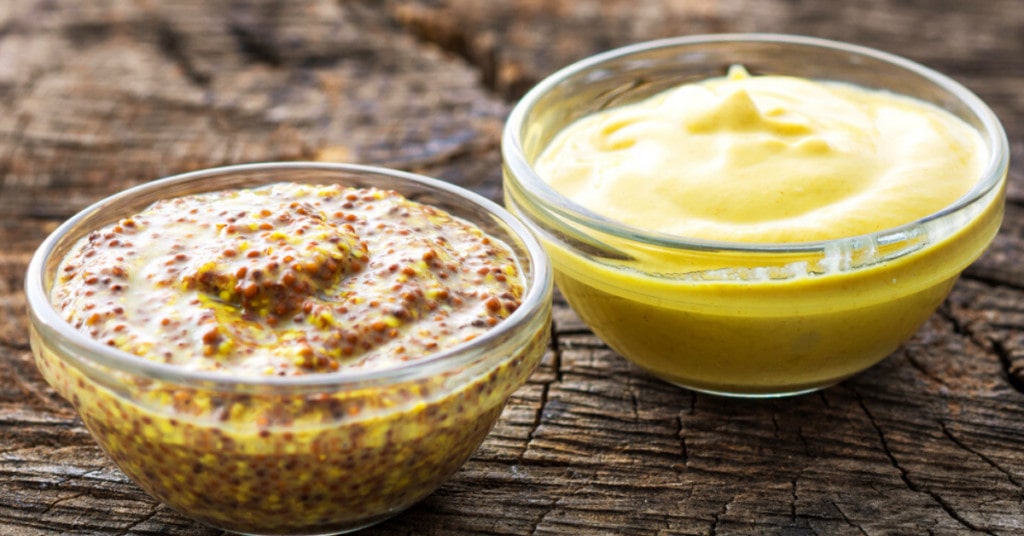
Wondering if your mustard really needs to be refrigerated? Find out the definitive answer.
Let’s be honest, many of us are guilty of keeping things in our pantry for who knows how long.
When you love experimenting in the kitchen like me, you often end up with way too many jars and cans of way too many condiments and ingredients.
One of them? Mustard! I don’t know about you but my mustard use is pretty erratic. One week I’m using up half a jar and then I never touch it again for months on end. The problem is I never know if it’s still safe to eat or not!
If you’ve recently found a bottle of mustard in your pantry or you just got some at the store and don’t want to make the same mistake I did, here’s everything you need to know about mustard.
Find out whether it really needs to be refrigerated, how to store it, and what to do if it dries out or separates.
Does Mustard Need to Be Refrigerated?
Well, it depends! Mustard is similar to ketchup because it’s acidic and will last longer than other condiments.
Typically, you can leave it at room temperature in a dark place with no sunlight if you know you’ll be finishing the entire jar or bottle within two to three months.
If you’re not sure how often you’ll be using it (as is the case with most of us when buying mustard!) then it’s definitely better to leave it in the refrigerator just to be on the safe side.
Wherever you choose to store your mustard, make sure the jar or bottle is sealed tightly. If the container is not airtight, this can cause your mustard to dry out or allow moisture to enter.
And no matter what you do, don’t dip those hotdogs into the jar! Make sure to use a spoon so you don’t allow any bacteria to enter, keeping your mustard fresh.
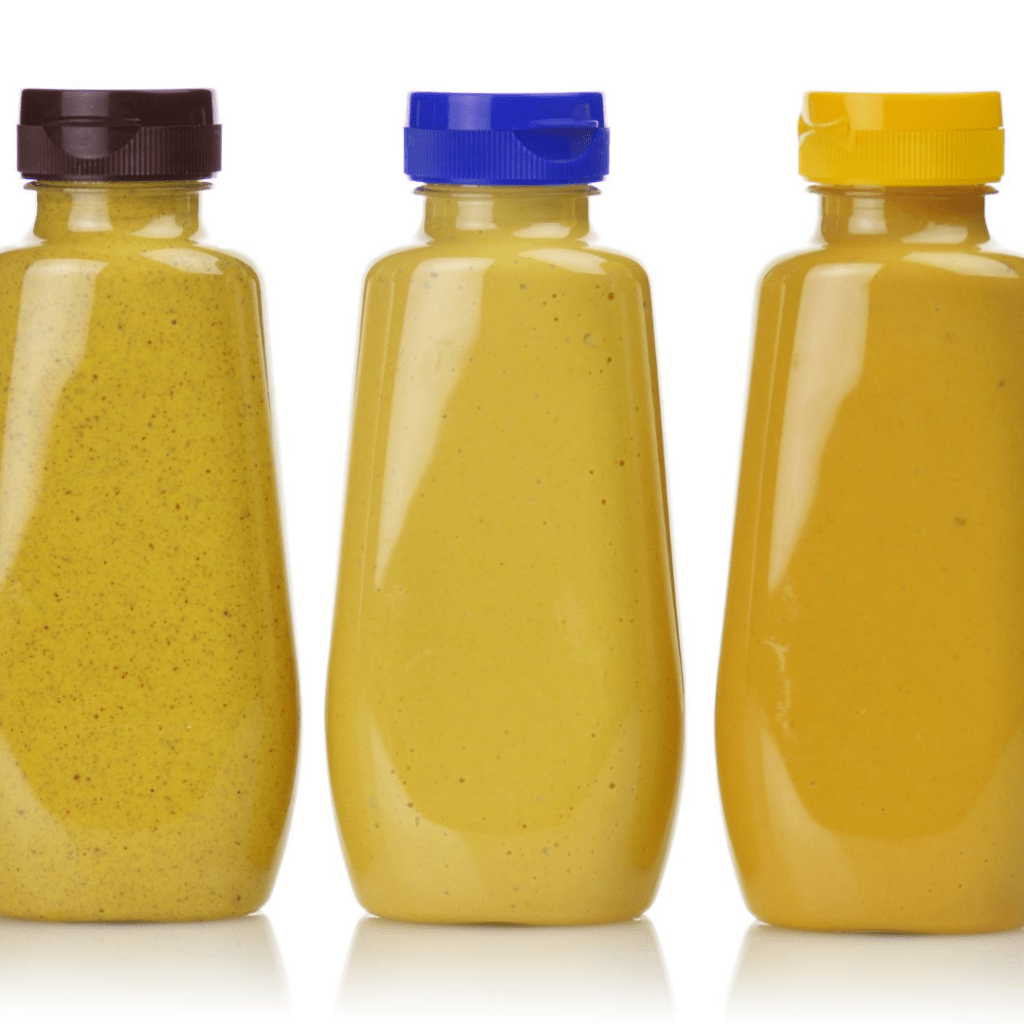
Can Mustard Go Bad?
The short answer to this is yes, but its exact shelf life is unclear.
This is because mustard is made up of mustard seeds, lemon juice, and vinegar and these ingredients are known to last very long. They’re even used to preserve other foods.
Of course, like most foods, any bacteria that enters your jar of mustard will cause it to spoil much faster. Again, keep it tightly sealed, practice food safety, and never dip anything directly in the mustard.
If the mustard has changed in color, tastes too bitter, or gives off a foul smell, it’s probably best to throw it out!
How Long Does Mustard Last?
Because of the ingredients in mustard that are natural preservatives like vinegar, an unopened jar of mustard can last years even when it’s not refrigerated.
Once the container is opened and exposed to air, it will be prone to drying out, separating, or losing some of its flavor. But as long as it’s in a sealed squeeze bottle or you never dip a used spoon in it and no bacteria enters, it should be safe to eat.
It will last even longer if kept in the refrigerator.
The kind of mustard you have also affects how long it will last. Dijon mustard will last the longest – up to three years unopened and one year if opened and kept in the fridge.
Next is American mustard and Chinese mustard which are good for up to two years unopened and also one year if opened and kept in the fridge.
Any mustard you get at the store will likely have an expiration date. So if you’re not sure, just throw it out if it’s past the expiration date.
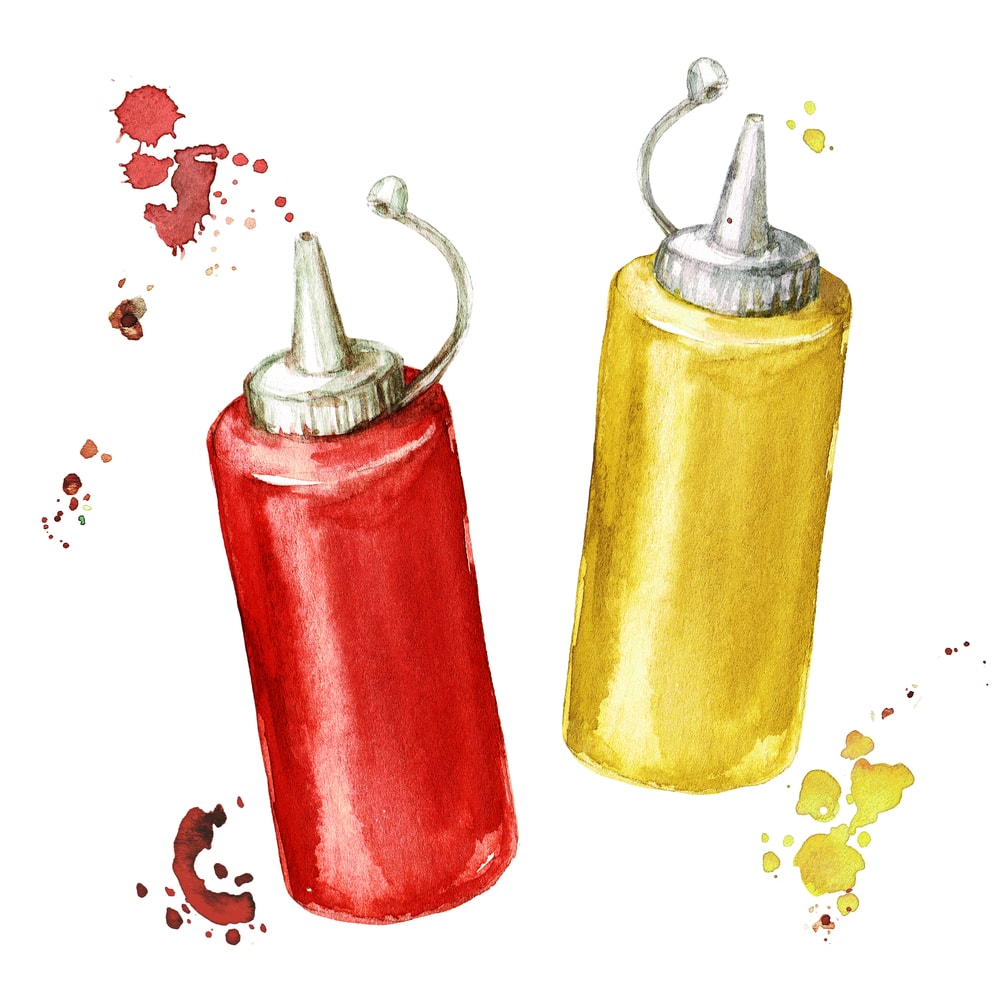
How to Store Mustard
The general rule with mustard is to keep it in a cool, dry place with no exposure to sunlight. If you are a frequent mustard user and will use up a jar or bottle within three months, it’s safe to leave it in the pantry.
This is why restaurants almost always have ketchup and mustard on the table. They go through those bottles on a daily or weekly basis. So there’s no need to refrigerate.
If you’re not sure how much you’ll be using, definitely keep it in the refrigerator to extend its shelf life. You might have to wait for it to warm up back to room temperature when you need it but it’s best to be safe.
Whether you’ll be keeping your mustard in the pantry or in the fridge, make sure the lid is on tight so your mustard doesn’t oxidize or dry up.
What to Do If Your Mustard Dries Out
Mustard will dry out if it’s kept unsealed for extended periods of time. To fix this, add in a teaspoon of vinegar at a time and stir until it’s back to its original texture.
If it’s too dry and you had to add too much vinegar that it affects the taste, you’re going to need a new jar of mustard!
What to Do If Your Mustard Separates
You might think that if the mustard separates, it means it’s gone bad. Don’t worry, it should still be fine as long as you kept it in the fridge sealed tight and practiced food safety (no dipping!)
Mustard will naturally separate when it hasn’t been moved for some amount of time and all you have to do is take a spoon and stir. If it’s in a jar, give it a good shake. You’ll see that it will quickly go back to its original texture.
